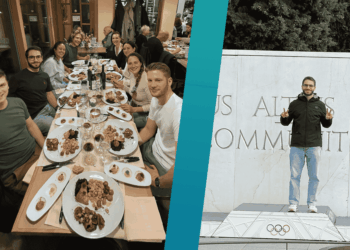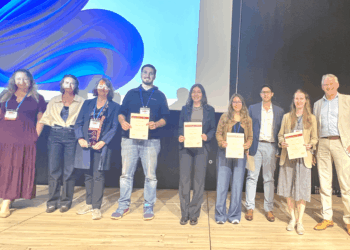Halfway through my PhD, I hit the dreaded “Valley of Despair”. I was left feeling frustrated, exhausted and uninterested, wondering if I’d ever rekindle the curiosity that got me here in the first place. This is quite common among PhD students – you start out feeling brilliant for being accepted into a PhD program, but as you learn more about your chosen research topic, you slowly begin to realise how little you actually know. This stage crushes curiosity by making progress feel impossible; you feel too overwhelmed to explore new ideas.

Upon reflection, I now know that I was experiencing the Dunning-Kruger effect in action. First defined back in 1999, this phenomenon describes how those with limited knowledge overestimate their abilities, while those with more expertise are more aware of their limitations1. In other words, when you first learn something new, you start out on the “Mount of Stupidity” where you think you know a lot more than you actually do. As you gain more experience, you end up where I was in the “Valley of Despair”, where your confidence plummets as you realise just how much there is to learn. Then comes the fabled “Line of Balance”, where your knowledge expands, and you gradually develop a more realistic sense of confidence. Heading into my final year, I feel like this balance is in sight, and my passion and curiosity has finally returned.
So how did I climb out of the valley and reignite my curiosity? For me, working with those affected by ovarian cancer and witnessing their enthusiasm for the research helped to renew my sense of interest and purpose. Public and Patient Involvement (PPI) is research carried out ‘with’ or ‘by’ members of the public rather than ‘to’, ‘about’ or ‘for’ them. This concept has recently gained traction in the area of cancer research, where labs are now actively involving the patient voice in the research process. Work by Connor et al. (2023) inspired me to get involved in PPI2.
For our PPI workshops, we work with those that have been affected by ovarian cancer and discuss topics like patient priorities, practical implementation of a diagnostic test and designing patient information leaflets. Not only has PPI guided our group’s research, it is the catalyst that helped to pull me out of my slump. Engaging with our PPI team, who are eager to learn more and are excited about my project, even when I felt disillusioned, helped me to rediscover excitement in my research. Their enthusiasm and support acted as my biggest cheerleader, lifting me through the highs and encouraging me to keep going through the lows. Their invaluable expertise, drive to make a difference in the world, and their bravery in sharing their personal experiences restored my passion and curiosity for research.
As I enter my final year of my PhD, I’m not completely clear of the valley just yet. However, I’ve learned some valuable lessons along the way. There will always be someone more well-read, more skilled and more knowledgeable than you are, but that does not mean you should despair in the valley or abandon the curiosity that initially motivated you. The support of others can reignite your curiosity and guide you through tough times. Our PPI team showcased their skills and enthusiasm, which reminded me of my own strengths. Thank you to our PPI team for reigniting my curiosity and guiding me out of the valley.
About the author:
Aideen McCabe is a final-year PhD researcher in the School of Biochemistry and Cell Biology, University College Cork, Ireland. Her project focuses on developing an early diagnostic test for ovarian cancer using long, non-coding RNAs. She is actively involved in Patient and Public Involvement (PPI) to make sure her research always keeps the patient at the centre. Aideen is supervised by Dr Kellie Dean and is funded Science Foundation Ireland (SFI) through the SFI Centre for Research Training in Genomics Data Science (18/CRT/6214). Her PPI activities are funded by the Irish Cancer Society.
About this article
This is one of our shortlisted entries for the 2024 EACR Science Communication Prize themed around our #KeepResearchCurious campaign. Choosing a winner was incredibly difficult and we’re delighted to share our shortlist with you.
The header image of this article was created using AI.
References
- Kruger J, Dunning D. Unskilled and unaware of it: how difficulties in recognising one’s own incompetence lead to inflated self-assessments. Journal of personality and social psychology. 1999 Dec;77(6):1121.
- Connor AE, Hughes C, Schäfer L, McNally L, Raw DO, Bahramian K, Carr B, Dunne IH, Lysaght J, Toole SA, Simpson JC. Involving patients in healthcare research is well documented but can it work in lab-based research? Research Involvement and Engagement. 2023 Oct 12;9(1):90.








